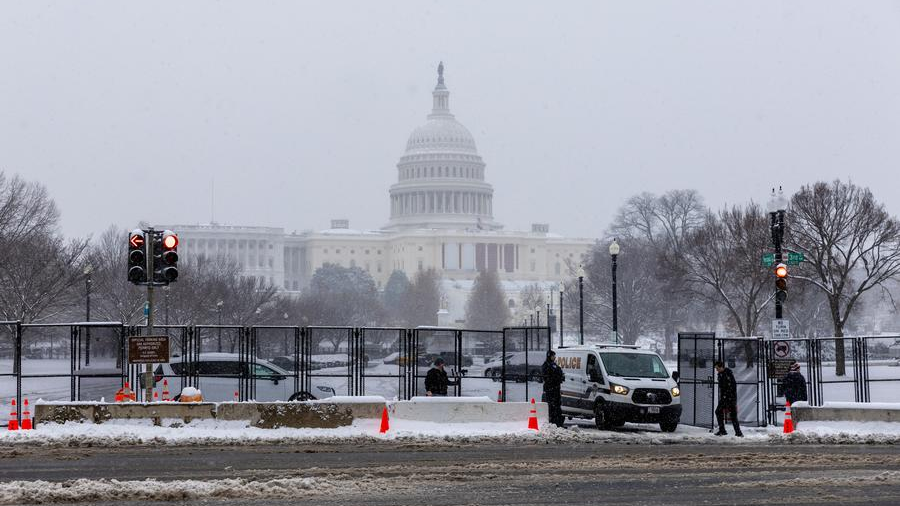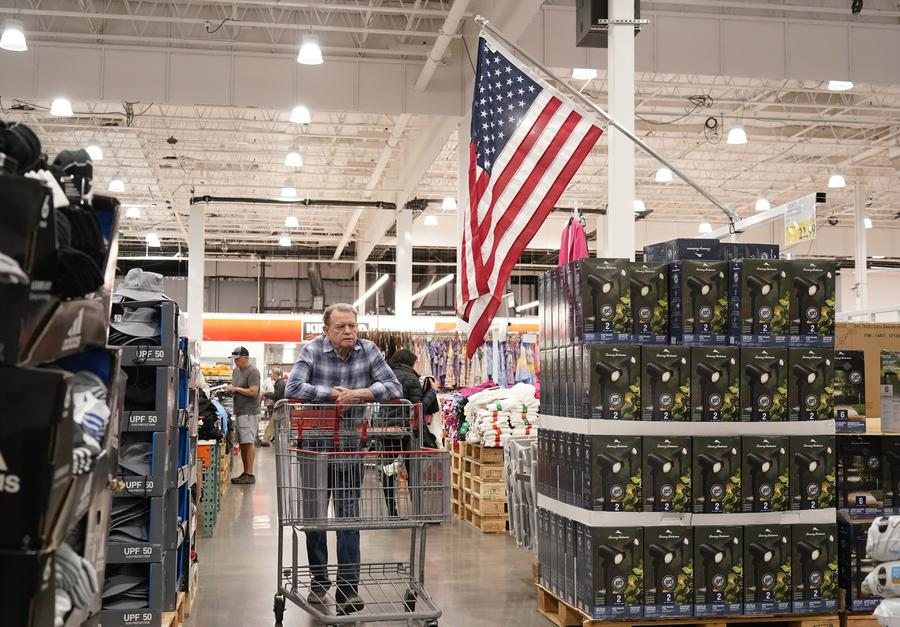
The U.S. Capitol building in Washington, D.C., the United States, January 6, 2025. [Photo/Xinhua]
By Xin Ping
A construction worker wearing a gray safety vest walks gingerly across the rooftop of a housing development in California. While the scars left by the deadly fires several weeks ago have yet to heal, housing costs in the U.S. may go through the roof even more, thanks to the recently announced tariff hikes.
Make America great?
The Trump administration on Thursday announced that starting March 4, the U.S. would impose a 25 percent tariff on imports from Canada and Mexico, as well as a 10 percent tariff on goods imported from China. If this slew of tariffs kicks in, many major construction materials will cost more, such as lumber (about 30 percent imported from Canada), lime and gypsum (about 70 percent from Mexico) and steel and aluminum (over 5 percent from China).
A study by the U.S. International Trade Commission also shows that each percentage point increase in tariffs would result in a 2-percentage point decrease in the quantity and value of imported goods subject to the tariffs. When imports shrink while demands at home remain high, prices go up.
How do sellers typically offset the impact? Raise the price and pass the cost onto consumers. From clearing goods at customs to sending them to final retailers, each player in the supply chain may mark up prices slightly to roll with the punches. Before long, the additional costs incurred by the tariffs will inevitably "trickle down" onto ordinary American consumers.
Like a seesaw game, tariffs push up prices and pull down earnings. Studies from various organizations show that tariffs would reduce after-tax incomes across all taxpayer groups, with the hardest impact falling disproportionately on lower-income households. In the end, those at the bottom will suffer a lot more than the top 1 percent.
That is not making America great again.
The writing on the wall
According to the U.S. think tank Peterson Institute for International Economics, if the U.S. moves forward with the tariff threats, the total import taxes on goods from China, Mexico and Canada will amount to an annual tax increase of over $1,200 per household – the largest U.S. tax rise in this century.
Worse still, inflation may creep up. A recent University of Michigan consumer survey revealed that Americans' inflation expectations for 2025 have already climbed to 4.3 percent, the highest level since November 2023. For Americans already struggling with persistent inflation, this is the last thing they need.

Customers at a supermarket in Foster City, California, the United States, May 15, 2024. [Photo/Xinhua]
While American families may not go to the grocery store to get steel and aluminum, they are bound to be directly hit by another tariff policy of Washington: the end of the de minimis exemption for Chinese goods. This measure hits American shoppers with unexpected duty bills on their small-value direct-from-China orders from Temu, Shein and other popular retailers. And who relies most on these platforms? The bottom 10 percent of income earners.
Back to fundamentals
If the U.S. truly seeks to protect and grow its own manufacturing industries, the answer is not to keep competitive foreign products outside its borders with tariffs. Every country has its strengths in the global economy. America excels in cutting-edge technologies and world-class services, claiming the largest share of profits across global supply chains. China is competitive in labor supply and land, enabling its manufacturers to produce cost-effective goods.
The right approach is to keep doors open, work together and leverage mutual strengths – especially in times of economic headwinds. If, as some claim, imports from China widen the trade deficit, why not encourage Chinese investment to boost manufacturing in the U.S.? Chinese solar panels, windmills and green equipment are energy-efficient and less reliant on fossil fuels, which will put the U.S. on a greener course.
If the U.S. overuses tariffs and shuts out other foreign businesses under the guise of national security, it risks retaliatory tariffs from other countries and a more fragmented global economy. Does it ring a bell? That's how tariff hikes and protectionism reigned after the Great Depression, which ended up choking global trade and worsened economic hardships. The rest is history. Repeating past follies should never be an option.
Xin Ping is a commentator on international affairs.

 中文
中文



